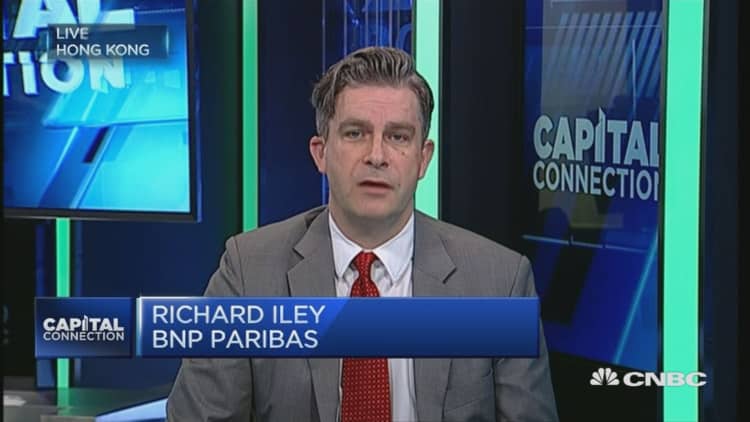India's state coffers are $10 billion richer thanks to the unexpected success of a government-led income declaration scheme. But among the many areas in need of urgent investment, from farmers' welfare to job creation schemes, Prime Minister Narendra Modi faces a difficult decision on how to spend the cash.
From June to September, Modi's administration sent about 700,000 notices to suspected tax dodgers, persuading them to reveal undeclared income and assets, referred to as black money, and pay a penalty. In return, the tax evaders would not be prosecuted, the government promised.
Finance Minister Arun Jaitley announced on Saturday that the program had so far resulted in 64,275 declarations worth a provisional $9.8 billion, well above the government's internal goal of $7.5 billion, Reuters reported. The final figure could be even higher, Jaitely said.
The heavyweight Asian economy has long struggled to collect tax revenues from its 1.2 billion strong population, for many reasons.
For one, many Indians are employed in the country's informal economy that typically pays in cash. Moreover, deeply rooted issues of excessive bureaucracy, inefficiency and corruption make it difficult for the government to collect what it's owed. As a result, just 1 percent of the population paid taxes during the 2012-2013 fiscal year, according to the latest government data released in May; 28.7 million people filed returns that year, but of these, 16.2 million did not pay tax, the report revealed.
Modi pledged to crack down on the billions lost in black money during his 2014 election campaign and so far, he appears to be delivering. His administration unveiled new rules this year that made it compulsory to declare a unique taxpayer number when purchasing goods over $2,980.
Jaitley announced that the newly-acquired funds would be allocated to social security purposes, local media reported. But current geopolitical tensions in Kashmir could prompt higher defense spending, Citi economists said in a Monday note.
"Part of the additional inflow from the Income Declaration Scheme may support higher defense spending in fiscal year 2018," Citi said.
India and Pakistan have been at loggerheads over the disputed territory for decades, but the conflict escalated on September 18 when Indian soldiers were killed in an attack in the Indian-administered town of Uri. New Delhi has blamed Pakistan, which denied the charges. In response, India launched "surgical strikes" inside Pakistan-controlled Kashmir. Both sides exchanged gunfire over the border at the weekend and at least one person was killed when six militants attacked an Indian army camp on Sunday.
Citi referred to historical evidence as justification, pointing to one of the many wars New Delhi and Islamabad fought over Kashmir.

"After the Kargil conflict in 1999, defense spending rose 18 percent on-year in fiscal year 2000 to 16 percent of total expenditure, or 2.3 percent of gross domestic product," the note said.
U.S.-India Business Council (USIBC) President Mukesh Aghi echoed those sentiments, in comments to The Hindu newspaper on Monday. Aghi said he expected spending on defense and security to "go up dramatically" due to the ongoing crisis in Kashmir.
But for some, the current geopolitical situation—however concerning—does not necessarily warrant an increase in military expenditure.
India's decisions to increase its naval capacity or buy weapons were typically aimed at catching up with China's military modernization, not battling Pakistan, noted Abhijnan Rej, fellow at New Delhi-based think-tank Observer Research Foundation.
"The decision to upgrade the defense sector is typically based on long-term integrated perspective planning, not just one single event," he said. "If the government can maintain a strong revenue base for some time to come, then it's possible we will gradually see an increase in military spending."
India was the world's fourth largest defense spender this year, according to IHS.
The bulk of economists believe the black money windfall should be allocated to social programs instead.
"It would certainly boost market confidence if the government were to target these funds towards spending that increases the economy's productivity and long-term growth potential," Eswar Prasad, senior professor at Cornell University and senior fellow at the Brookings Institution, told CNBC on Monday.
"Productivity-enhancing expenditures, such as on infrastructure or education, would not only direct boost growth but also have a positive effect on investor and consumer confidence," he continued.
Economists have long warned New Delhi to upgrade the nation's rickety roads, trains and ports, as well as health, education and other social programs that would benefit citizens, 12.4 percent of which lived below the poverty line in 2011-12, according to the latest World Bank data.

